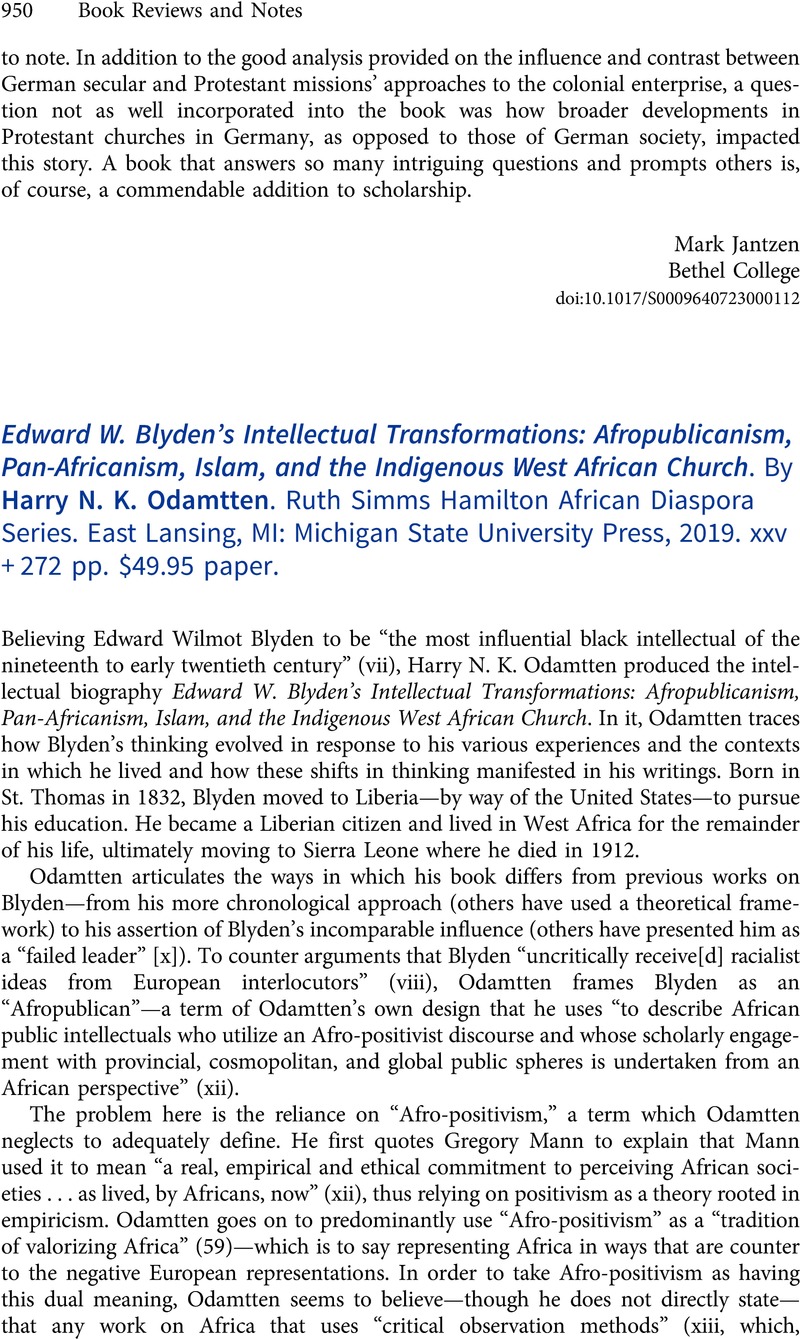No CrossRef data available.
Article contents
Edward W. Blyden's Intellectual Transformations: Afropublicanism, Pan-Africanism, Islam, and the Indigenous West African Church. By Harry N. K. Odamtten. Ruth Simms Hamilton African Diaspora Series. East Lansing, MI: Michigan State University Press, 2019. xxv + 272 pp. $49.95 paper.
Review products
Edward W. Blyden's Intellectual Transformations: Afropublicanism, Pan-Africanism, Islam, and the Indigenous West African Church. By Harry N. K. Odamtten. Ruth Simms Hamilton African Diaspora Series. East Lansing, MI: Michigan State University Press, 2019. xxv + 272 pp. $49.95 paper.
Published online by Cambridge University Press: 03 May 2023
Abstract
An abstract is not available for this content so a preview has been provided. Please use the Get access link above for information on how to access this content.

- Type
- Book Reviews and Notes
- Information
- Copyright
- Copyright © The Author(s), 2023. Published by Cambridge University Press on behalf of American Society of Church History


